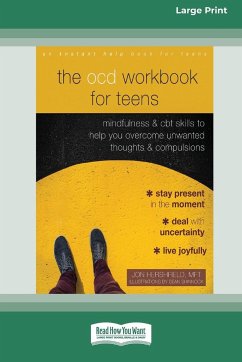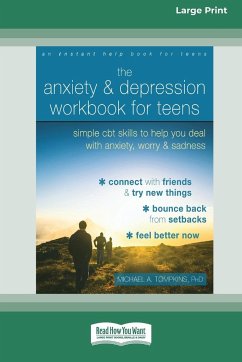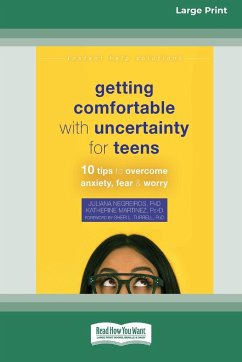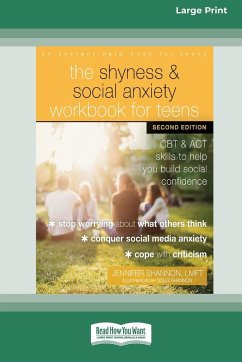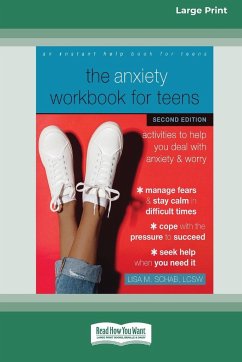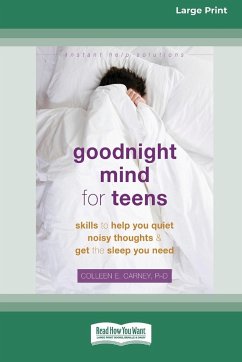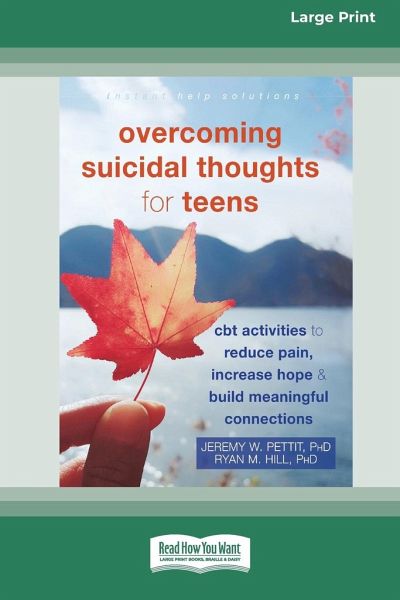
Overcoming Suicidal Thoughts for Teens
CBT Activities to Reduce Pain, Increase Hope, and Build Meaningful Connections (16pt Large Print Edition)
Versandkostenfrei!
Versandfertig in 1-2 Wochen
26,99 €
inkl. MwSt.

PAYBACK Punkte
13 °P sammeln!
Suicide is the second leading cause of death among teens in the US, and the need for effective prevention has never been greater. Written by two adolescent suicide experts, this gentle and effective guide will help teens overcome suicidal thoughts by reducing emotional pain, increasing hope, and building meaningful connections. Readers will learn specific skills grounded in evidence-based cognitive behavioral therapy (CBT), including how to establish safety plans, identify and manage intense emotions, limit stress, find purpose, and ultimately take control of their suicidal thoughts to move fo...
Suicide is the second leading cause of death among teens in the US, and the need for effective prevention has never been greater. Written by two adolescent suicide experts, this gentle and effective guide will help teens overcome suicidal thoughts by reducing emotional pain, increasing hope, and building meaningful connections. Readers will learn specific skills grounded in evidence-based cognitive behavioral therapy (CBT), including how to establish safety plans, identify and manage intense emotions, limit stress, find purpose, and ultimately take control of their suicidal thoughts to move forward into a more optimistic and hopeful future.






